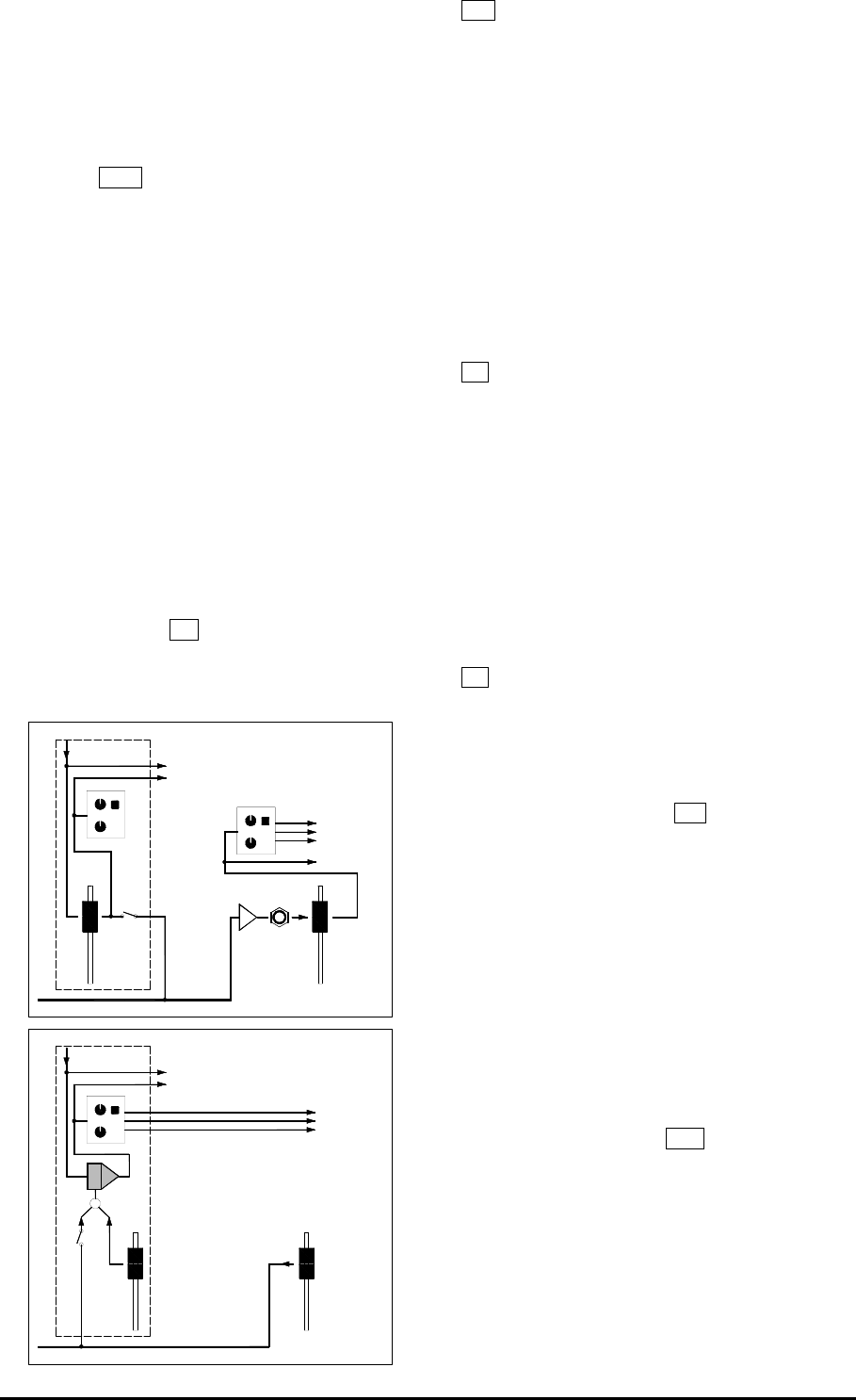Operation Manual

ML5000 User Guide 39
Using VCA Groups
Use audio groups where you want to insert group
signal processing or send groups of signals to the
matrix. Use VCA groups if you want grouped level
control only.
Route the channels to the mix by pressing the MAIN
MIX switch C1 . Adjust the PAN and BLEND
controls for the image required. Assign the channel
to the required VCA group using the edit groups
routine described on the next page. Check the
channel VCA assign LEDs next to the fader for
correct assignment. Once assigned, the group
fader affects the channel level. Start with the group
fader set to its nominal ‘0’ position.
You can assign the channel to more than one
group. Take for example a theatre musical
production. Here, you may have stage
microphones assigned to Group 1, radio mics to
Group 2, and all microphones to Group 3. You may
also have all channels assigned to Group 8 as a
‘grand master’ to control the overall volume. In this
case, a radio microphone would be assigned to
Groups 2, 3 and 8. Note that the VCA groups affect
all channel post-fade sends such as effects and
direct outputs but not the pre-fade monitors.
Refer also to section M for details on storing the
channel VCA group assignments in the snapshot
memories.
K1 MUTE. This momentary action switch turns
all assigned input channels on or off. It acts as a
remote control for the mute switches on those
channels. The channel pre-fade, post-mute sends
are also affected. The mute switches on assigned
channels light when the group is muted.
The switch also functions as a solo select when the
console is in SIP mode or as a group select key
when in EDIT GROUPS mode.
The VCA group mute cannot be assigned to a mute
group or snapshot memory. However, channels
which have been muted by the group can be stored
in the memories.
K2 SAFE / EDIT. This green LED has a different
function according to console mode:
Normal No function
Solo-in-Place The LED lights when the group has
been made safe from solo-in-place.
Edit Safes Indicates that the group is safe from
solo-in-place in SIP mode.
Edit Groups No action.
Preview Snapshots No action.
K3 PAFL. Press this switch to listen to the group
signal in the headphones or engineers monitor
without affecting the main outputs. It acts as a
remote control for the PAFL switches on assigned
channels. It actions either all channel PFL or stereo
AFL in-place depending on the setting of the master
section INPUT PAFL switch P2 .
Using PAFL
Set the master section INPUT PAFL switch for
either PFL or stereo AFL in-place when you select a
VCA group PAFL.
Use PFL to check for signal presence while the
group fader is down. This is useful when you need
to check that all is well before raising the fader and
bringing the assigned channels into the mix. The
channel PFL switches are turned on and the signals
mixed together at the same level. Turn down the
master PFL TRIM control N1 if the signal is too
loud in the monitor.
Use AFL to check the balance and contribution of
the group of channels to the mix. The signal follows
the fader levels and image controls with C mixed
into the L and R so that you can listen to the LCR
mix in stereo.
PRE-FADE SENDS
POST-FADE SENDS
PAN
CHANNEL
FADER
MASTER
FADER
CHANNEL
ASSIGN
AUDIO GROUP
PRE-FADE SENDS
POST-FADE SENDS
PAN
MAIN MIX
R
L
C
+
VCA
CHANNEL
FADER
MASTER
FADER
CHANNEL
DC
ASSIGN
VCA GROUP
PAN
MAIN MIX
R
L
C
INSERT
MATRIX SEND
AUDIO BUSS
DC VOLTAGE
SUBGROUP










